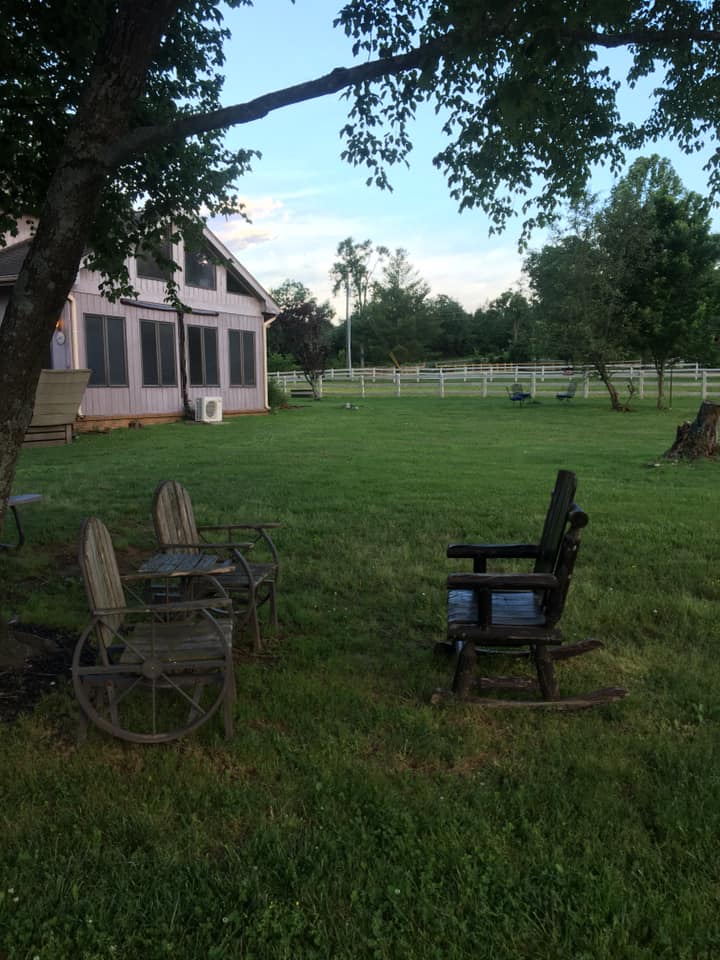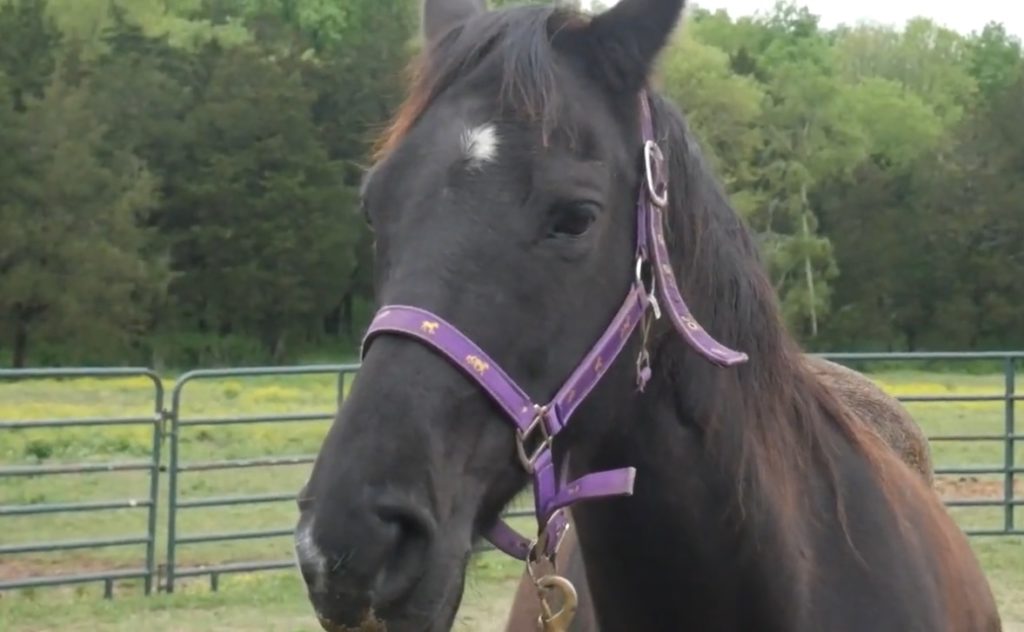UPDATED 03/01: The following story includes original reporting, as well as updated information provided by CFMT and Lantern Lane Farm’s (LLF) director of engagement, Holly Griffith.
Lantern Lane Farm is a nonprofit counseling center located in Mt. Juliet. Its purpose is to help restore people who seek a safe place to experience healing through traditional and equine-assisted counseling services in a peaceful, countryside setting. Counselors utilize a variety of approaches. The organization offers a sliding fee scale to assist those who have limited financial resources.
Lantern Lane Farms has received a $10,000 grant to provide counseling and mental health support to tornado survivors.
Bricks and mortar can be repaired. So can hearts and minds.
Both take time.
Imagine a parent’s stress and anxiety of having a tornado destroy your home, only to be kept waiting for several months to receive an insurance settlement to start the process of rebuilding.
Now imagine the stress and anxiety of also having your child’s middle school destroyed by that very same tornado.
All this In the middle of a worldwide pandemic.
Such is the case of just one of the current clients at Mt. Juliet’s Lantern Lane Farm, a nonprofit counseling center that has been an integral part of the recovery efforts after deadly and destructive tornadoes swept through Wilson County and Middle Tennessee during the early morning hours of March 3.
As part of family counseling, this particular client is receiving parenting support and coaching, and a child is also receiving counseling in the form of play therapy related to the child’s fear and anxiety stemming from losing both home and school (West Wilson Middle School).
The family members attended free/no-fee group counseling in the days following the storm. They also are receiving reduced price/individual counseling with two Lantern Lane Farm therapists, thanks in part to a grant from The Community Foundation’s Middle Tennessee Emergency Response Fund.
Holly Griffith, Lantern Lane Farm’s Director of Engagement, responded to questions from The Community Foundation on June 25.
CFMT: How are you using, or planning to utilize, the tornado emergency response grant?
LLF: We will be utilizing tornado funding to help offset the cost of individual and group counseling for survivors of tornado impacts in Wilson County. Several clients, both children and adults, have been impacted either directly, i.e.: losing their house or school in the storm or losing their job as a result of the pandemic, right on the heels of the storms; and are experiencing anxiety, depression or other impacts on their mental health as a result of that loss.
Individual counseling is provided at a highly discounted rate and tornado funds will help offset (reduce) the cost of counseling. A number of group counseling series for survivors and those impacted will be provided Free/No Fee beginning in June 2020. Three groups are forming now, focused on Teens and Adults. Additional groups will be offered for children as school sessions begin in August.
CFMT: In light of changes in how we all live and work due to the COVID-19 pandemic, how is your organization managing to work in supporting tornado relief and recovery efforts? What challenges have you all overcome or are overcoming?
LLF: Immediate response to tornado impacts had counselors and social workers from Lantern Lane Farm onsite providing training, individual and group counseling and crisis support at area churches (such as The Glade), schools (West Wilson Middle School) and community areas (Charlie Daniels Park) during the days following the storm.
For example, Kerri Tracy, LCSW, provided play experiences for children to help them process their feelings of fear or anxiety related to storms or loud noises. Ralph Cook, LMFT, also led an adult group onsite at the farm during the days following the storm. In addition, staff provided videos linked to our YouTube channel and social media pages to provide mental health tips and coping skills.
LLF has transitioned to TeleHealth (remote) counseling services in response to the need for social distancing. We successfully transitioned approximately 85% of clients from in-person counseling to remote counseling during the months of April and May.
In recent weeks, beginning mid-May, we have reopened our counseling center to in-person counseling sessions utilizing our outdoor areas. We are meeting outdoors on the farm, in areas peaceful and tranquil settings such as the front porch, under a shade tree, in the newly decorated horse shed, etc. wearing masks. We are also practicing heightened cleaning protocols (such as wiping down surfaces after each counseling session).

CFMT: Give a favorite example or two of your staffers or volunteers stepping up to make a difference to help people through these disasters, and/or a client or clients who have benefited from your efforts.
LLF: Real estate agency Keller Williams of Mt Juliet participates in a national RED Shirt Day annually in May. This year they switched their original plans of volunteering at the farm on May 14 (the plan was to do some fence cleaning, landscaping and barn chores) because of the restrictions on gathering in groups. Instead they took up a collection among their real estate agents and donated over $500 toward the purchase of outdoor furniture, outdoor carpets, plants, umbrella and stand and accessories — to enable LLF to beautify our outdoor spaces for outside counseling sessions. Lowe’s [Home Improvement] in Lebanon, Tennessee also helped out by providing generous price discounts on the items that were purchased at their store.
CFMT: In terms of tornado relief and recovery, what needs remain in your community or communities?
LLF: Because many children and families were impacted by the loss of West Wilson Middle School and Stoner Creek Elementary School due to the tornado in March, and then never returned to school as a result of the pandemic, at LLF we anticipate a significant need for counseling in support of students and teachers as they return to school under a “new normal.” We don’t know what that will look like just yet. But we do know that many clients who already experience stress and anxiety will likely be impacted once the school year starts up.
In addition, fear of the unknown and support in coping is offered through our counseling center. Teachers are likely to need resources both in support of their own mental health and that of their students.
We are participating in the community response team called Recover Wilson and are serving as their mental health resource as needs are identified. We are offering support through communication and referral with this ongoing group, consisting of pastors, construction and relief workers, and other community advocates through case management.
LLF is here to support the immediate and long-term impacts of the tornadoes and pandemic on people’s mental health. Stress and anxiety have cumulative effects on mental and physical health, and we are dedicated to providing immediate and long-term counseling services to those in need.
CFMT: Define the word “hope” for you and your organization.
LLF: At Lantern Lane Farm, we place the individual at the center of our operations. We provide nonjudgmental, Christ-like care to all in need. Our hope is placed in our Lord and Savior and is reflected in how we provide services to everyone regardless of their religion, income, race, gender, ethnicity, status or personal situation. We hope those in our community will continue to trust us as a safe place for their healing. We hope that all people have a safe place to go to process their emotions and to receive loving care.
As we walk through this very long process of rebuilding our community, we will walk alongside people as they face future challenges, celebrate holidays, attend different schools, rebuild their homes and businesses, and look back with renewed strength and resilience. Whether impacted by the storm or the pandemic or other issues, we are here to provide hope and healing.

Follow up with Holly Griffith, Director of Engagement, Lantern Lane Farm (LLF)
CFMT: From your organization’s perspective, what progress has been made since the March 2020 tornadoes, and what more still needs to be done for survivors?
LLF: Lantern Lane Farm is proud to be part of a community that quickly and effectively addressed the cleanup and support efforts through funding and community engagement in the wake of the tornado. Members of our staff joined members of our community and stepped out to directly support tornado survivors in a variety of ways, including cleanup, donations, housing a displaced family and, of course, counseling services for groups and individuals directly and indirectly affected by the storms.
To date, 13 families have been funded through the grant, enabling them to process alongside mental health professionals. Calls continue to come in, and we (and they) are grateful for the support that has been made available through MTER.
As for what more still needs to be done, because of the way events unfolded with regard to the timing of the tornado, followed by the onset of the pandemic, there is much still left to do. A major example of work left undone stands starkly as a reminder in the affected schools.
However, it’s not just the obvious demolition and school rebuilding that remains. Recovery, in terms of mental health, includes reconciling and processing our losses. For the many, many school students who have not returned to their schools, and the educators and leaders who transferred to other physical locations, that reconciliation has been on hold. This can be a simple or involved process, but the fact remains that fencing went up and no one has returned to the school since.
Lantern Lane Farm’s counselors were poised to provide teacher and student support work for those affected. However, with the cancellation of school, that opportunity was not realized in a group setting held at the school. As an alternative, LLF has hosted individual and group telehealth/virtual counseling. And, although not ideal, there has been significant progress made for those in attendance.
A final point about ‘work remaining’ centers on the need for assessment and support for those who are already underserved within the greater community. The tornadoes certainly impacted us all in one way or another. #StrongTogether — we rallied through cleanup efforts, food distribution, emotional support and community outreach. However, as the March 2020 tornado becomes farther and farther in the ‘rear view mirror,’ let us never forget that tragedy, grief, loss, anxiety, depression, and other storms of life have the potential to levy an impact greater than any tornado.
It is our hope that our community, regardless of the weather, will remember that mental health counseling services should be available to all in need. Through support of our mission, Lantern Lane Farm Counseling Center will continue to be a place Where Healing Happens.
Learn More about Lantern Lane Farm
Online at: https://www.lanternlanefarm.org/